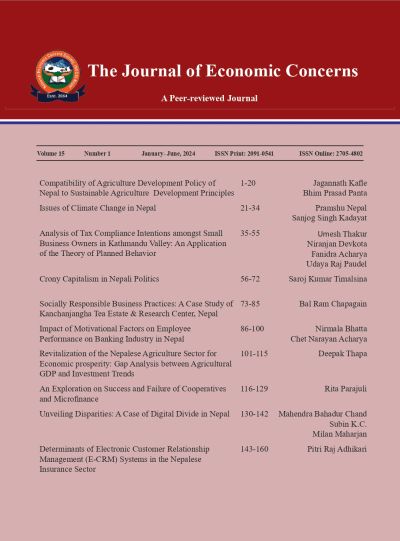Socially Responsible Business Practices: A Case Study of Kanchanjangha Tea Estate & Research Center, Nepal
DOI:
https://doi.org/10.3126/tjec.v15i1.70242Keywords:
Corporate Social Responsibility, Creating Shared Value, Stakeholders, Kanchanjagha Tea Estate & Research Center, NepalAbstract
Considering the ongoing debate regarding the roles of business in society, this case study highlights the exemplary socially responsible business practices of Kanchanjangha Tea Estate & Research Center (KTERC), Nepal. The data regarding the responsible business practices of KTERC were collected from primary as well as secondary sources. The qualitative content analysis of data obtained from KTERC's website, reports, deliberations in a business resiliency symposium, and three in-depth interviews with the company's executives revealed that KTERC’s approach to CSR goes far beyond shareholder and philanthropic approaches and it provides a good business case for CSR. The analysis of data showed that KTERC is embracing the stakeholder approach of CSR with special emphasis on creating shared value approach in order to create a win-win situation between business and society. In light of the study findings, corporate managers can learn CSR best practices and design their CSR policies and initiatives to gain social legitimacy as well as reap various strategic benefits. The government and policymakers can also recognize and reward certain CSR practices that are congruent with the government's social goals. This is perhaps the first study of its kind in the Nepalese context.




